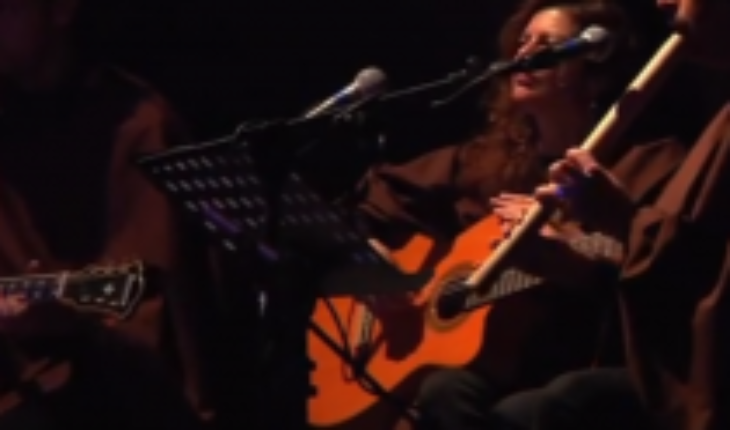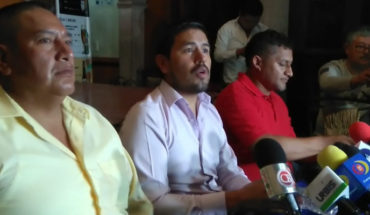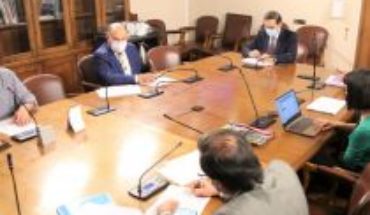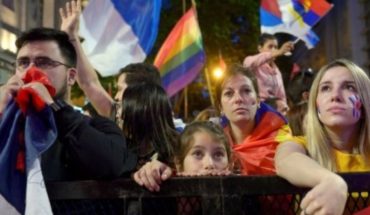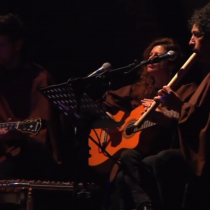
Deputy Boris Barrera proposes helping music workers through a bill that increases the broadcast of Chilean music for greater duty collection.
“Playing more Chilean music during this pandemic will not decrease the revenue of the radio stations nor does it mean a decrease for television. On the other hand, if it means that more resources can be allocated to musicians and performers as long as the state of emergency governs and will benefit in concrete terms thousands of national musicians,” argues the Communist Party legislature.
The objective of the project, which is expected to be presented on Wednesday, is to establish a plan to help national authors and performers, such as technicians, sounders, among others, by increasing the dissemination of national music on radio stations and open-signal television channels.
Bad situation
According to a state-of-the-art assessment by the Ministry of Cultures, Arts and Heritage to gather the background to the impact of the Coronavirus pandemic, the results indicate that “the main problems affecting respondents are the cancellation of previously confirmed activities (36.4% individual and 34% collective), the decrease in perceived income (25.6% and 18.2%) and the postponement of activities (16.7% and 15.9%). For groupings, the reduction in sales (10.5%)” is added. It should be noted that one of the main sectors affected is opera.
Research on the effect of the pandemic on the workers’ economy, especially in the world of culture, revealed that in the case of musicians, 30% said they will no longer receive more than 60% of their income from their activities, because events are banned two months ago.
From that date onwards, there has been no public activity. On April 2, the Union of Musicians and Artists declared that “we are out of work and committed to total helplessness.” He accuses complete helplessness, considering that his contracts are sporadic and unformed.
According to a poll conducted by the Industria Musical Independiente Chile, 91.1% of the musicians said they had to cancel performances and 86.7% have cancelled tours. This situation has led different instances of collaboration around the world to bring about the precariousness of workers in the music industry.
In international experiences, on March 25, the Spotify app announced measures for musicians and performers: a British foundation to help artists from that country MusiCares (owned by the Grammys) and Help Musicians, a foundation to help british artists in retirement. All in order to protect the interpreters in times where their activity is completely suspended for health reasons.
In Latin America, Alejandro Fernández, a Mexican musician, presented a tribute theme to Joan Sebastián and held a charity event in aid of MusiCares, Relief Fund of the United States and Music Mexico COVID-19 in Mexico, in order to gather resources for musicians and performers.
Copyright
To date, there have been no similar instances in our country, which help generate resources or go to chilean musicians, with the exception of an exceptional distribution of resources by the SCD.
Copyright is a source of income that continues to operate regardless of the ability of Chilean musicians and performers to act.
Law No. 19.928 on the Promotion of Chilean Music protects the activity and promotes musicians and performers by establishing a quota of 20% of music programming on radios (Articles 15 and 15o bis). The standard states:
“(…) Radio stations operating sound broadcasting concessions in their daily programming shall broadcast at least one-fifth (20%) national music, measured on the total number of songs broadcast, distributed during the daily day of transmission of each broadcast, without being able to accumulate more than half of the total broadcast of the music during night hours, this is from 22:00 to 06:00”.
Proposal
Given the situation of national musicians, a concrete measure that is proposed by this project, is to increase the percentage of Chilean music that is heard on radio and television.
Although choosing a percentage could be an arbitrary act, Barrera believes that by 50% for the purpose of establishing the rule of “a weight for the national musician and a weight for intercournationally.”
“This measure extends to television broadcasting that also plays music, and setting a minimum percentage of playback, will be a great contribution immediately.”
“It is in the interest of this project, to promote solidarity and with it, concrete help to musicians. This is not a trade discussion but a humanitarian measure,” he says.
Objectives
The objective of the project is to establish a plan to help national authors and performers, such as technicians, sounders, among others, by increasing the dissemination of national music on radio stations and open-signal television channels.
“The concrete idea is to help, in the midst of this pandemic, the music workers who have been affected by curfew, the cancellation of concerts and the closure of venues, through the increase in the percentage (quota) of playing Chilean music made by radio stations and on television,” Barrera says.
“This initiative is in solidarity, and through the construction of a payroll, it seeks to deliver a social benefit to those who make up it, that is, music workers.”
In order for this delivery to be made in a timely and expeditious manner, the Member proposes to use State instruments, such as the Social Register of Households (RSH) in its distribution criteria. Likewise, music and show workers who do not have RSH, can apply by proving their status as a musician or music worker. This accreditation can be done in a different way: through sponsorship of trade union organizations, local guilds, or by applying as a musical ensemble, among others. “The central thing is to be able to help in a timely and supportive way between workers.”
In addition, for the preparation of this payroll, citizen participation in the various instances should be considered, especially at the regional level, for the purpose of accounting for the different realities. This participation should also consider gender criteria, he notes.
“Because, in order for mass events and musical performances to resume, there needs to be health security. The project proposes a transition period, between the end of the declaration of the constitutional state of emergency by COVID-19 and cessation of delivery of the fund. This is how it provides for a first point of ninety days in addition to the term of the state of emergency as the first stage in which 50% is established. It is worth remembering that the President could declare the constitutional state of emergency more than once. The project then proposes to add a second stage with 90 more days, but with 30% Chilean music on radio and television.”

